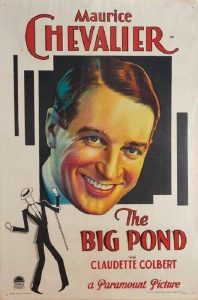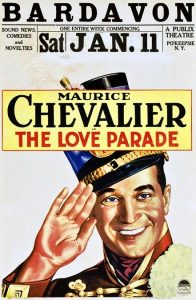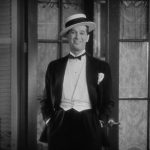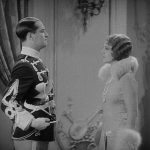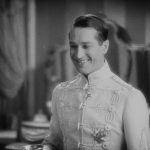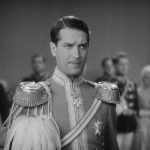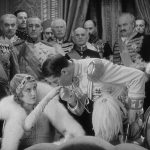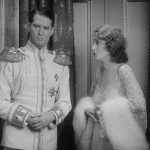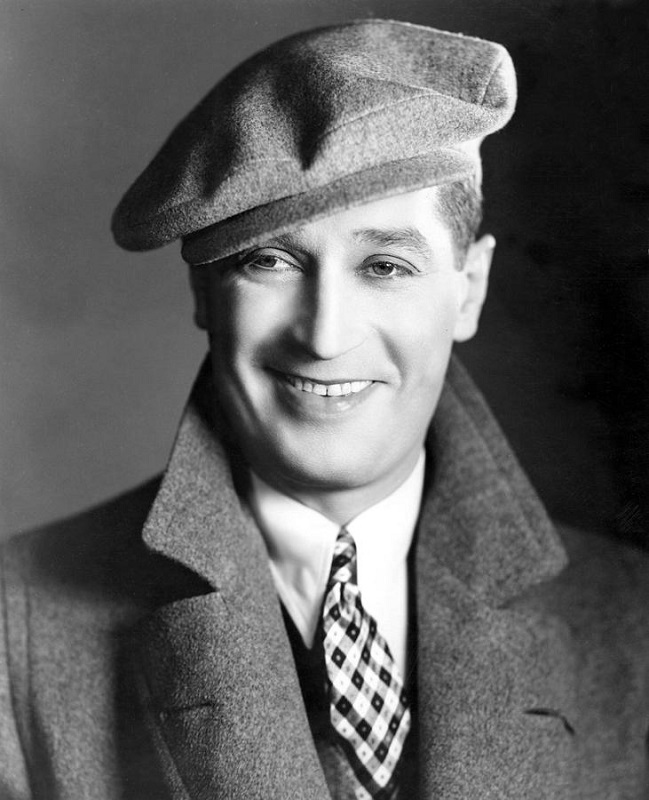

1929-30 – Maurice Chevalier
The Love Parade
I need to say, right off the bat, that I was not able to find a copy of The Big Pond to watch, but I was able to watch The Love Parade. But if his performance in The Big Pond was anything like any of his other film performances, and really, weren’t they all pretty much the same, I think I can safely say, I was really unimpressed, at least in the capacity of a Best Actor nominee.
And why? Because he was charming. But that was Chevalier’s problem, and, if truth be told, the reason for his success as an actor. He was incredibly charming. His manners were affable, his smile was disarming, and the character he played was pleasant and likeable. Granted, I have only seen a few of his films, but he played the exact same character in the same kind of role every time. Seriously. Consider his performances in 1931’s The Smiling Lieutenant, 1958’s Gigi, and 1961’s Fanny. He played the womanizing yet loveable playboy in each film. All the men liked him, and all the women loved him because, well… he was charming.
Unfortunately that was all. I didn’t think his acting was anything special. After all, he had only three facial expressions throughout the entire film. There was the affable smile, the roguish smile, and the practiced smile, though they were really all the same smile. Then there was his annoyed face where he knotted his brow a little. And there was his angry face, which was pretty much the same as his annoyed face with the corners of his mouth turned down. His singing, because this was a musical, was mediocre at best, and he didn’t dance. His heavy French accent was pleasant to listen to, but it didn’t improve the caliber of his acting. And I don’t think the role, itself, was worthy of a Best Actor nomination. This was a romantic comedy that was so light hearted that the drama was almost nonexistent. Not much was demanded of the actor. The story was a fun role reversal, where the woman was the one with the power, and the man was a mere trophy husband. Had it been a dramatic film, there might have been some serious complexity. But if the issue of gender inequality was ever addressed, it was done so in a frivolous way, making it more of a throw-away gimmick, rather than of a real source of drama.

1929-30 – Maurice Chevalier
The Big Pond
Now that I’ve been able to find and watch The Big Pond, I have to admit that I actually liked his character in this one, more than I usually like the characters he plays. The problem is that he once again played the exact same character he’s played in nearly every movie I’ve seen him in. Certainly it was the same as the part he played in the other film he was nominated for in 1930, The Love Parade. He was a charming, roguish Frenchman.
But here, playing the part of Pierre Mirande, he only started out as a penniless playboy. The plot gave Pierre the change to grow, to mature, and to become a responsible, hard-working man, and I liked that. True, he sort-of lucked into his high paying executive job, but there was a scene that showed him in the office, on the phone and managing other employees.
And boy, did he ever bank on that smile of his. He was sporting that perfect smile nearly every time he was on the screen, even when something bad happened to his character. It’s hard not to think that the small number of facial expressions might have stunted the emotional range of the character, even though I know that’s not really the case… well, not entirely. But I think that it must have been what the audience wanted to see. Because whether I like his rather simplistic acting or not, the audiences loved him, and all he had to do was show those perfect teeth and speak in that heavy French accent, and he had them all wanting more. So while in Venice, Pierre meets Barbara, a young American girl, the daughter of a super-wealthy business owner. Of course, Dad doesn’t like him, but to make Barbara happy, dear-ol-dad brings Pierre to America so he can make good and become a man who can marry his daughter. But dad’s plan is really to work him so hard and pay him so little that he will give up his dreams of marrying Barbara and return to France. But Pierre sticks it out, works hard, and comes up with an idea and a successful marketing plan, making a lot of money for the business, and impressing Barbara’s father. And that’s what makes Chevalier’s character, and his performance, different, and maybe better, than most other films I’ve seen him in.
